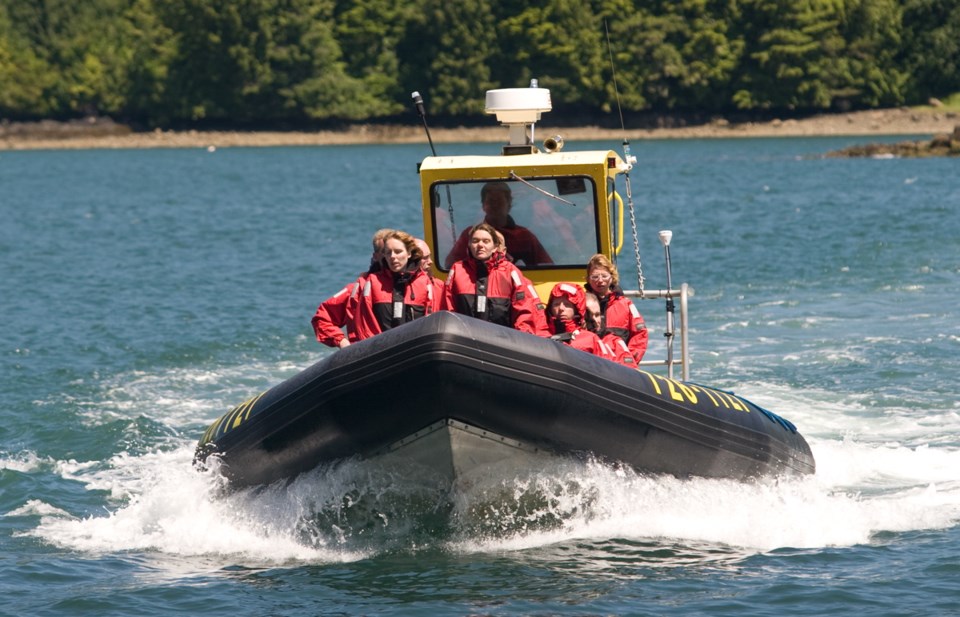The group tasked with watching whale-watchers may not have eyes on the water this summer.
Straitwatch, run by the non-profit Cetus Research and Education Society, is waiting to hear whether its Environment Canada funding will materialize this year and time is running out as Victoria’s prime whale-watching season starts in May.
“We haven’t heard anything about the Habitat Stewardship Program funding,” said spokeswoman Leah Thorpe.
Straitwatch monitors the behaviour of boaters around the endangered southern resident and threatened northern resident killer whales and conducts education programs.
Last year, Straitwatch was forced to pull its Zodiacs out of the water in Victoria and Alert Bay in August — the busiest month of the year for whale-watching — because only $100,000 of the expected $300,000 in government funding materialized. Environment Canada funded the program for the past decade.
This year, the group applied for $98,000 — enough to run two partial programs — in the hope that Environment Canada would look more favourably on its proposal, Thorpe said.
“We didn’t get an answer when we asked why we didn’t get the funding last year, so we had to speculate and so we applied for less than we need,” she said.
Cetus has been fundraising since last summer, but didn’t raise enough to put boats back in the water, Thorpe said.
Full funding of $300,000 pays for eight full-time staff for the season and two boats on the water between five and seven days a week. Costs include fuel, moorage, maintenance and insurance.
“When you break it down, $300,000 is not a lot of money for what we do.” Thorpe said.
The proposed $98,000 program would pay for four full-time staff and boats on the water between two and four days a week.
If no federal funding comes through, Straitwatch will try to continue its land-based education program with the help of volunteers, Thorpe said.
Many recreational boaters are unaware of the federal law forbidding them from harassing or disturbing the whales. Provincial guidelines state that boaters and whale-watching vessels must remain 100 metres away from whales.
Canada’s killer whale recovery plan has pinpointed underwater noise as one of the major threats facing southern resident killer whales.
“There are a lot of incidents and a lot of education is required out there,” Thorpe said. “There are only 84 [southern] residents remaining.”
One bright spot is that the group’s marine warden program in Robson Bight has received funding from B.C. Parks.
Boaters in the Washington state portion of Juan de Fuca Strait are monitored by Soundwatch, the U.S. equivalent of Straitwatch.
Environment Canada did not respond to questions about the funding.



